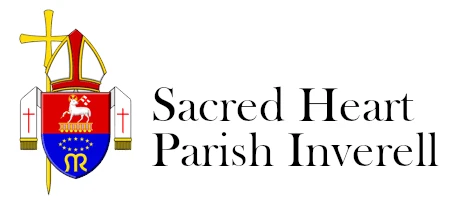Second Sunday of Advent - 10 December
10th December 2023

Second Sunday of Advent - 10 December
“Faith and love are like the blind man’s guides. They will lead you along a path unknown to you, to the place where God is hidden.” - St John of the Cross
Faith Candle
The second candle of Advent represents Faith and is called “Bethlehem’s Candle” for it symbolises the journey of Mary and Joseph to Bethlehem. Micah had foretold that the Messiah would be born in Bethlehem, which is also the birthplace of King David. The candle is also purple to symbolise our preparation for the coming king.
A reflection on today's readings by the Venerable Archbishop Fulton J Sheen:
"History is full of men who have claimed that they came from God, or that they were gods, or that they bore messages from God. Each of them has a right to be heard and considered. But as a yardstick external to and outside of whatever is to be measured is needed, so there must be some permanent tests available to all men, all civilizations, and all ages, by which they can decide whether any one of these claimants, or all of them, are justified in their claims. These tests are of two kinds: reason and history. Reason, because everyone has it, even those without faith; history, because everyone lives in it and should know something about it.
"Reason dictates that if any one of these men actually came from God, the least thing that God could do to support His claim would be to pre-announce His coming. If God sent anyone from Himself, or if He came Himself with a vitally important message for all men, it would seem reasonable that He would first let men know when His messenger was coming, where He would be born, where He would live, the doctrine He would teach, the enemies He would make, the program He would adopt for the future, and the manner of His death. By the extent to which the messenger conformed with these announcements, one could judge the validity of his claims.
"Reason further assures us that if God did not do this, then there would be nothing to prevent any impostor from appearing in history and saying, 'I come from God,' or 'An angel appeared to me in the desert and gave me this message.' In such cases there would be no objective, historical way of testing the messenger. We would have only his word for it, and of course he could be wrong.
"If a visitor came from a foreign country to Washington and said he was a diplomat, the government would ask him for his passport and other documents testifying that he represented a certain government. His papers would have to antedate his coming. If such proofs of identity are asked from delegates of other countries, reason certainly ought to do so with messengers who claim to have come from God. To each claimant reason says, 'What record was there before you were born that you were coming?'
"Because of the Old Testament prophecies, Christ’s coming was not unexpected. There were no predictions about Buddha, Confucius, Lao-tze, Mohammed, or anyone else; but there were predictions about Christ. Others just came and said, 'Here I am, believe me.' They were, therefore, only men among men and not the Divine in the human. Christ alone stepped out of that line saying, 'Search the writings of the Jewish people and the related history of the Babylonians, Persians, Greeks, and Romans.'
"If one searches out the various Messianic currents in the Old Testament, and compares the resulting picture with the life and work of Christ, can one doubt that the ancient predictions point to Jesus and the kingdom which he established?
"Turn to pagan testimony. Tacitus, speaking for the ancient Romans, says, 'People were generally persuaded in the faith of the ancient prophecies, that the East was to prevail, and that from Judea was to come the Master and Ruler of the world.'
"China had the same expectation; but because it was on the other side of the world, it believed that the great Wise Man would be born in the West.
"The Greeks expected Him, for Aeschylus in his Prometheus six centuries before His coming, wrote, 'Look not for any end, moreover, to this curse until God appears, to accept upon His Head the pangs of thy own sins vicarious.'
"How did the Magi of the East know of His coming? Probably from the many prophecies circulated through the world by the Jews as well as through the prophecy made to the Gentiles by Daniel centuries before His birth.
"Cicero, after recounting the sayings of the ancient oracles and the Sibyls about a 'King whom we must recognise to be saved,' asked in expectation, 'To what man and to what period of time do these predictions point?' The Fourth Eclogue of Virgil recounted the same ancient tradition and spoke of 'a chaste woman, smiling on her infant boy, with whom the iron age would pass away.'
"Not only were the Jews expecting the birth of a Great King, a Wise Man and a Saviour, but Plato and Socrates also spoke of the Logos and of the Universal Wise Man 'yet to come.' Confucius spoke of 'the Saint' the Sibyls, of a 'Universal King' the Greek dramatist, of a saviour and redeemer to unloose man from the 'primal eldest curse.' All these were on the Gentile side of the expectation. What separates Christ from all men is that first He was expected; even the Gentiles had a longing for a deliverer, or redeemer. This fact alone distinguishes Him from all other religious leaders.
"Born of a woman, He was a man and could be one with all humanity; born of a Virgin, who was overshadowed by the Spirit and 'full of grace,' He would also be outside that current of sin which infected all men."
(Life of Christ)
An Advent Prayer
O Lord, incline Your merciful ears to our prayers and enlighten the darkness of our hearts by the light of Your visitation. Almighty God, fulfill our desire and kindle our hearts by Your Spirit, that being filled with the oil of Your grace, we may shine as bright lights at the coming of Your Son Jesus Christ; who lives and reigns with You and the Holy Spirit, one God, now and forever. Amen. 


Food for Thought
The Advent season reminds us that if we are to be true followers of Christ then we must seek to follow His example in performing good works from the motive of Charity. Often what appears to be charity is really done for carnal motives—self-love, the hope of a reward or recognition by others. True charity is not self-seeking, but goes all the way for the honour and glory of God. Those who are charitable envy no one, nor do they seek their own pleasure, but desire above all things to find their joy in God. They refer all to God, from Whom all things come and in Whom all the Saints find their eternal blessedness. So when you do a good deed this Advent do not seek the adulation and praise of others for your generosity. Rather, let God be your only witness so He may bestow a more eternal reward upon you.


